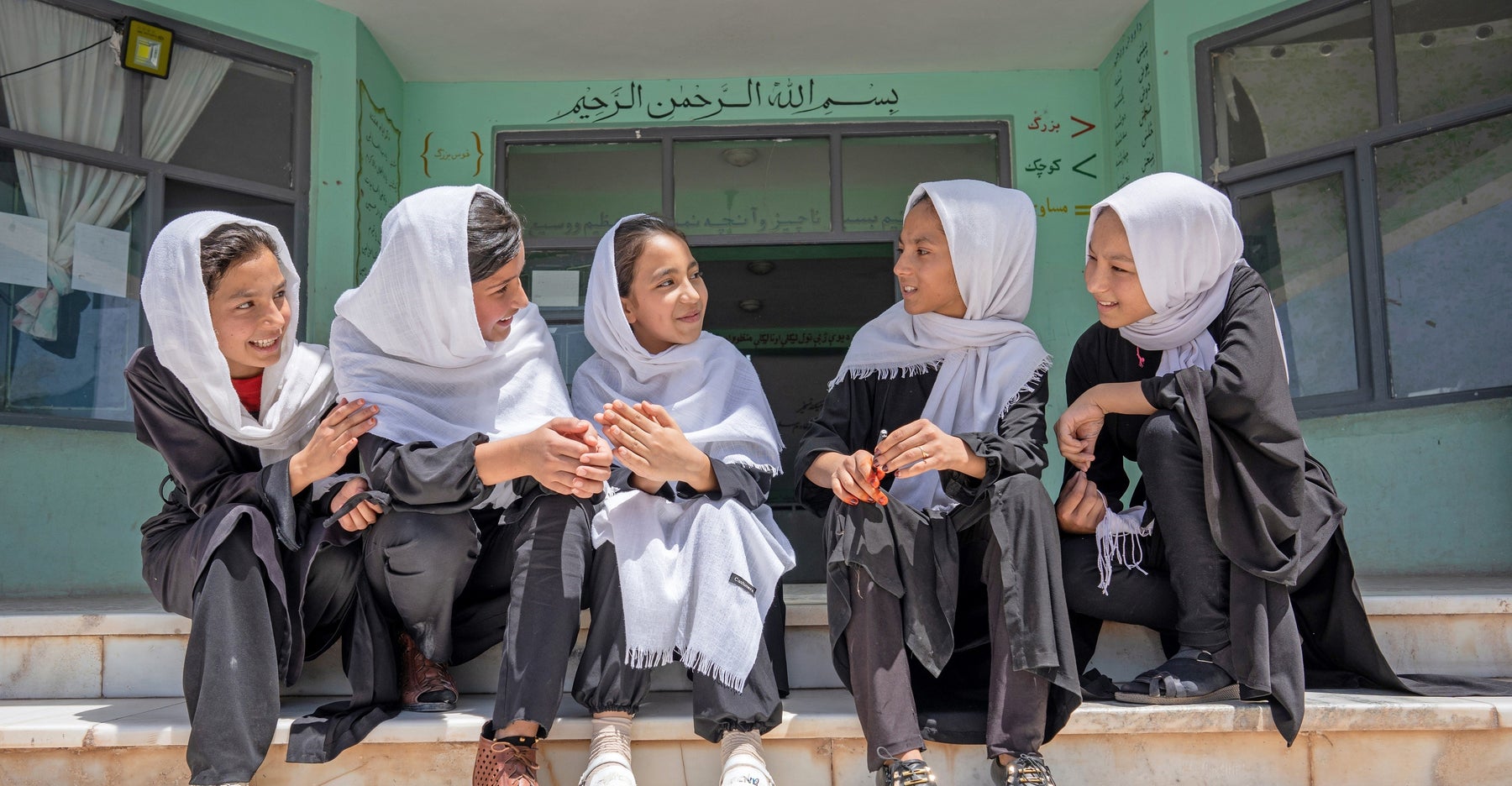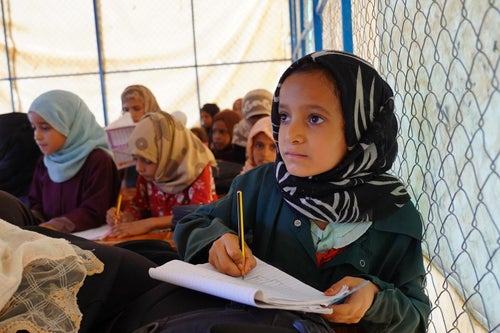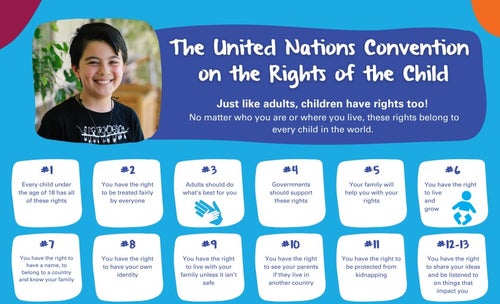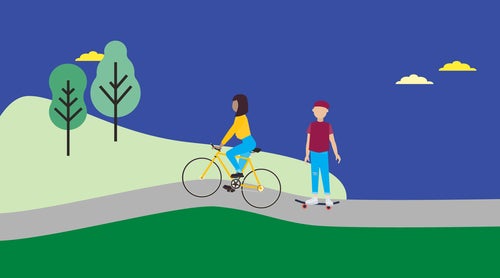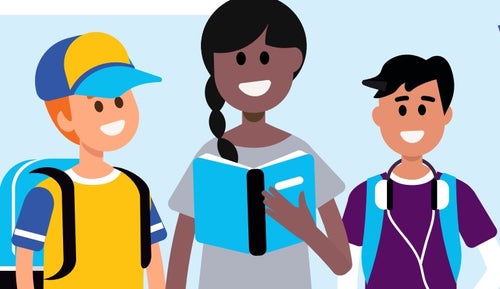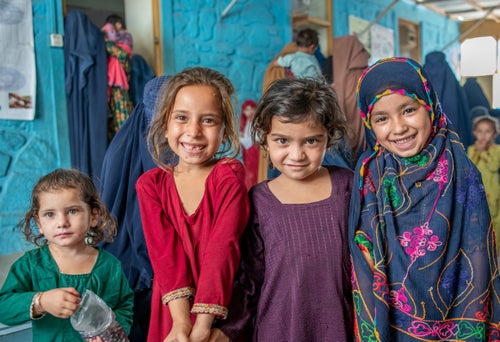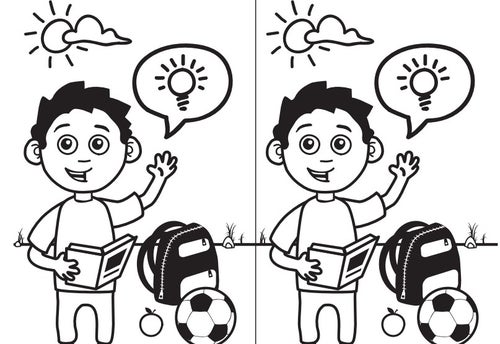In 1989, world leaders made a historic commitment to all children by adopting the United Nations Convention on the Rights of the Child
An international agreement on child rights.
This is the most widely ratified human rights treaty in history and has helped transform children’s lives around the world. In fact, UNICEF plays a critical role in seeing that the rights of every child, no matter who they are or where they live, are realised.
Teacher Resources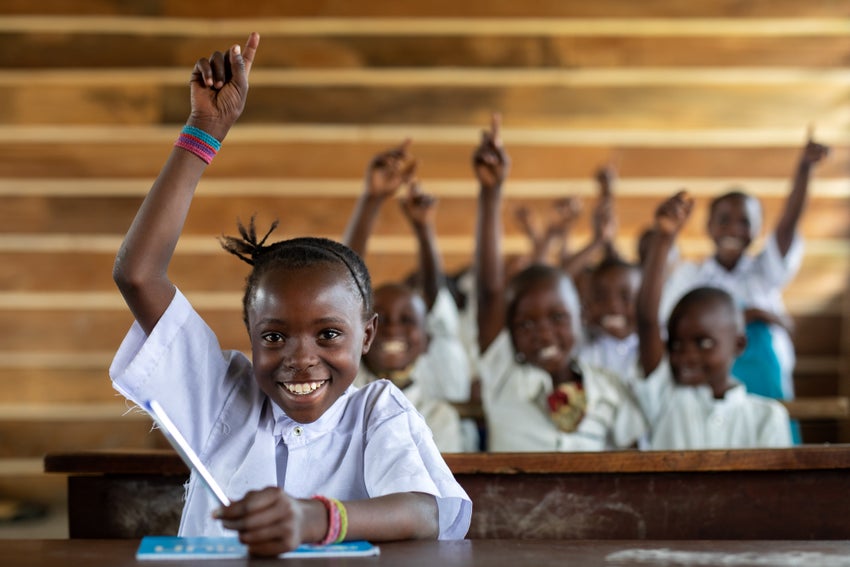
What is the United Nations Convention on the Rights of the Child?
The United Nations Convention on the Rights of the Child, or UNCRC, is a special agreement made by governments from all around the world (including Australia) to ensure every child, no matter who they are, where they live or what they believe, has rights.
After listening and learning from the experts, most countries that make up the United Nations agreed on 54 different rights that every child under 18 should have to live a safe, healthy and happy life. In 1989 they signed this agreement, which we now know as the United Nations Convention on the Rights of the Child. All the rights are connected, equally important and cannot be taken away from children.
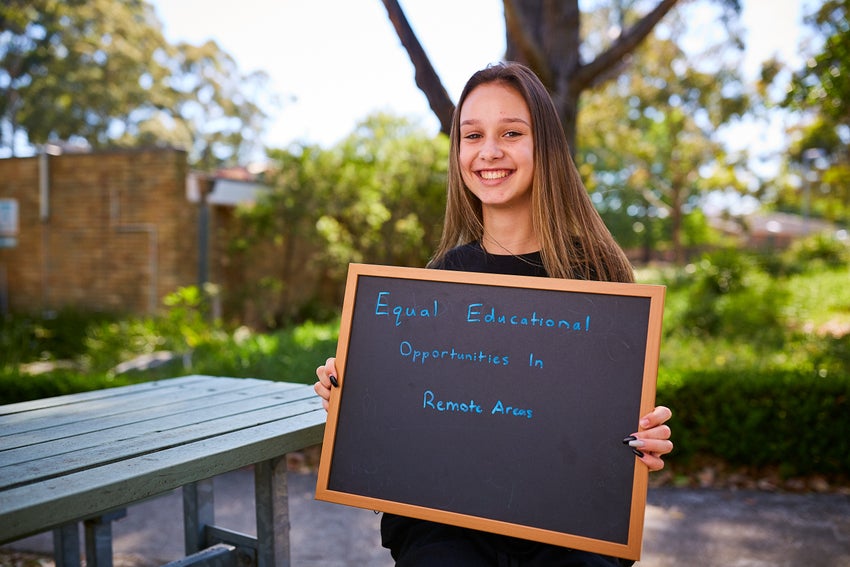
Why does the Convention on the Rights of the Child matter?
The Convention on the Rights of the Child is based on what a child needs to grow, learn and live a safe and healthy life with dignity and respect. It is for every child, no matter their gender, religion, culture or ethnicity.
The four core principals of the Convention on the Rights of the Child
The four core principles of the Convention on the Rights of the Child are non-discrimination, best interests of the child, the right to survival and development, and the views of the child.
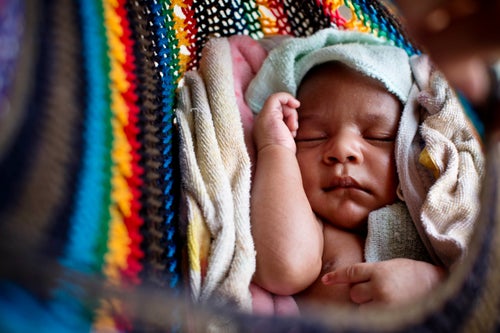
Everyone is equal (Article 2)
Whatever their age, gender, culture or belief, every child has rights.
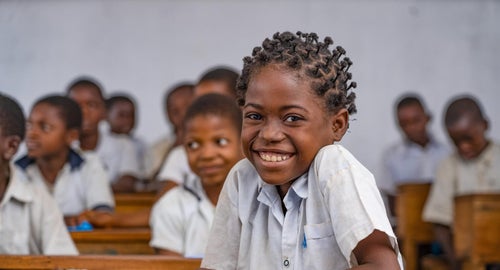
Do what is best for the child (Article 3)
Adults should always consider the impact of their decisions on children.
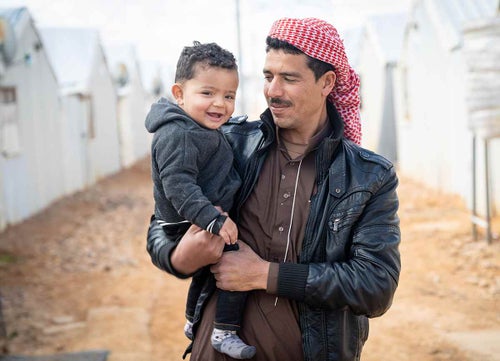
Everyone has the right to live and grow (Article 6)
Every child has the right to live. Governments should make sure children can grow up healthy.
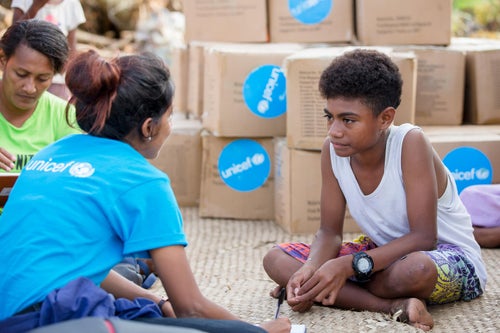
Children's opinions matter (Article 12)
Every child can share their thoughts and feelings. Adults should listen and take them seriously.
Summary of the Convention on the Rights of the Child
Article 1
Everyone under 18 years of age has all the rights in this Convention.
Article 2
The Convention applies to everyone whatever their race, religion, abilities, whatever they think or say, whatever type of family they come from.
Article 3
All organisations concerned with children should work towards what is best for each child.
Article 4
Governments should make these rights available to children.
Article 5
Governments should respect the rights and responsibilities of families to guide their children so that, as they grow up, they learn to use their rights properly.
Article 6
Children have the right to live a full life. Governments should ensure that children survive and develop healthily.
Article 7
Children have the right to a legally registered name and nationality. Children also have the right to know their parents and, as far as possible, to be cared for by them.
Article 8
Governments should respect a child’s right to a name, a nationality and family ties.
Article 9
Children should not be separated from their parents unless it is for their own good. For example, if a parent is mistreating or neglecting a child. Children whose parents have separated have the right to stay in contact with both parents, unless this might harm the child.
Article 10
Families who live in different countries should be allowed to move between those countries so that parents and children can stay in contact or get back together as a family.
Article 11
Governments should take steps to stop children being taken out of their own country illegally.
Article 12
Children have the right to say what they think should happen when adults are making decisions that affect them and to have their opinions taken into account.
Article 13
Children have the right to get and to share information, as long as the information is not damaging to them or to others.
Article 14
Children have the right to think and believe what they want and to practise their religion, as long as they are not stopping other people from enjoying their rights. Parents should guide children on these matters.
Article 15
Children have the right to meet with other children and young people and to join groups and organisations, as long as this does not stop other people from enjoying their rights.
Article 16
Children have the right to privacy. The law should protect them from attacks against their way of life, their good name, their family and their home.
Article 17
Children have the right to reliable information from the media. Mass media such as television, radio and newspapers should provide information that children can understand and should not promote materials that could harm children.
Article 18
Both parents share responsibility for bringing up their children and should always consider what is best for each child. Governments should help parents by providing services to support them, especially if both parents work.
Article 19
Governments should ensure that children are properly cared for and protect them from violence, abuse and neglect by their parents, or anyone else who looks after them.
Article 20
Children who cannot be looked after by their own family must be looked after properly by people who respect their religion, culture and language.
Article 21
When children are adopted the first concern must be what is best for them. The same rules should apply whether children are adopted in the country of their birth or if they are taken to live in another country.
Article 22
Children who come into a country as refugees should have the same rights as children who are born in that country.
Article 23
Children who have any kind of disability should receive special care and support so that they can live a full and independent life.
Article 24
Children have the right to good quality health care, clean water, nutritious food and a clean environment so that they will stay healthy. Richer countries should help poorer countries achieve this.
Article 25
Children who are looked after by their local authority rather than their parents should have their situation reviewed regularly.
Article 26
The Government should provide extra money for the children of families in need.
Article 27
Children have the right to a standard of living that is good enough to meet their physical and mental needs. The government should help families who cannot afford to provide this.
Article 28
Children have the right to an education. Discipline in schools should respect children’s human dignity. Primary education should be free. Wealthier countries should help poorer countries achieve this.
Article 29
Education should develop each child’s personality and talents to the full. It should encourage children to respect their parents, their cultures and other cultures.
Article 30
Children have the right to learn and use the language and customs of their families, whether or not these are shared by the majority of the people in the country where they live, as long as this does not harm others.
Article 31
Children have the right to relax, play and to join in a wide range of leisure activities.
Article 32
Governments should protect children from work that is dangerous or that might harm their health or education.
Article 33
Governments should provide ways of protecting children from dangerous drugs.
Article 34
Governments should protect children from sexual abuse.
Article 35
Governments should make sure that children are not abducted or sold.
Article 36
Children should be protected from any activities that could harm their development.
Article 37
Children who break the law should not be treated cruelly. They should not be put in a prison with adults and should be able to keep in contact with their family.
Article 38
Governments should not allow children under 15 to join the army. Children in war zones should receive special protection.
Article 39
Children who have been neglected or abused should receive special help to restore their self-respect.
Article 40
Children who are accused of breaking the law should receive legal help. Prison sentences for children should only be used for the most serious offences.
Article 41
If the laws of a particular country protects children better than the articles of the Convention, then those laws should override the Convention.
Article 42
Governments should make the Convention known to all parents and children.
The complete Convention on the Rights of the Child has 54 articles. Articles 43-54 are about how adults and governments should work together to make sure that all children realise their rights.
Download the simplified Convention on the Rights of the Child PDF poster
Download PDF PosterFrequently asked questions
Human rights are universal and often expressed and guaranteed by international law. Children and young people have the same general human rights as adults, but they also have specific rights that recognise their needs as children.
Even though the rights set out in the Convention on the Rights of the Child are very similar to the rights that adults have, this convention explains that adults and governments have extra responsibilities to make sure that children access all their rights. This is because children are growing, learning and sometimes need extra protection because of their age.
These rights belong to every child in the world. So, if you are under 18 years old – these are your rights!
Even though every child always has rights, sometimes there are big barriers that stop them from understanding and using their rights.
For example, every child has the right to be protected from all kinds of violence. But every day, many children see or experience violence – at home, at school or in their communities.
Every child has the right to be listened to and to have their opinions taken seriously when decisions are being made about their lives. But many adults don’t take the time to listen to children’s views, or work with children to find the best way to solve problems they may face in their lives.
Governments, adults and children need to work together to get rid of these barriers so that children can enjoy their rights and be their very best.
196 countries have agreed to the Convention of the Rights of the Child, including Australia.
There are also three extra rules called "Optional Protocols". These give more protection to children in situations like war or child trafficking.
The convention is a legally binding framework, meaning all countries that have accepted the agreement are required by law to ensure that all children can enjoy their civil, political, economic, social, and cultural rights.
The United Nations Convention on the Rights of the Child was created by the United Nations General Assembly on 20 November 1989.
There are 54 articles in the Convention Rights of the Child, which gives children and young people a range of rights, including the right to health, education, play and family life. As well as the right to be protected from violence, not to be discriminated against, and to have their views heard.
UNICEF is mandated by the United Nations General Assembly to advocate for the protection of children's rights, to help meet their basic needs and to expand their opportunities to reach their full potential.
Organisations like UNICEF have an important role to play in reminding governments of their responsibilities to children. We work to give governments advice about how best to protect and promote children’s rights. We also work with governments to find the best way to this for the largest number of children.
Sometimes, if a government or adults are not doing a good job of protecting children’s rights or don’t have what they need to do this well, UNICEF will step in and work with other organisations to provide what children need to be safe, survive, grow and be treated fairly.
Helpful resources for parents and educators
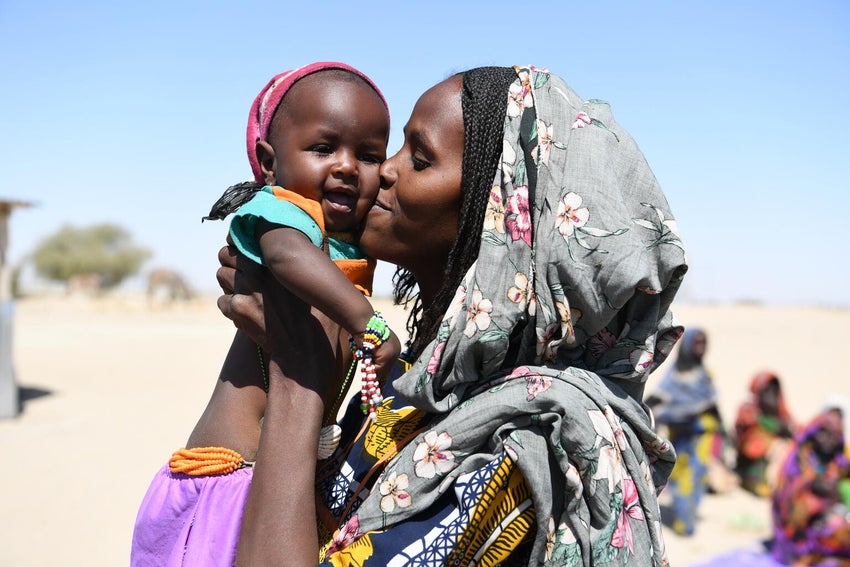
Subscribe and stay connected
Get the latest updates, inspiring stories, and ways to get involved, delivered straight to your inbox.
When you subscribe to UNICEF Australia’s email, you’ll learn how we’re making a difference in the lives of children, here in the Asia Pacific and around the world. From emergency relief to long-term development programs, UNICEF is there for every child when they need it most.



